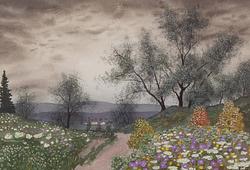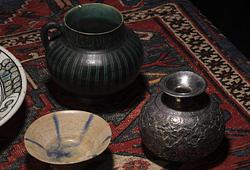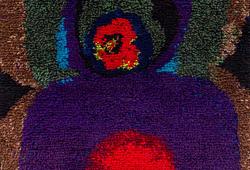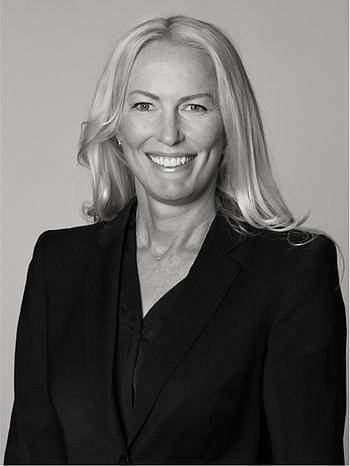Allan Ebeling
A glazed ceramic jug, Upsala-Ekeby 1929.
Globular jug with a handle in the form of a tiger, glazed in green, yellow, and orange, signed UE AE 1929. Height 41.5 cm.
Provenance
The Rilton Family Ebeling collection, Torshälla.
More information
Allan Ebeling
The Rilton Family Ebeling Collection
Bukowskis presents a selection of ceramic pieces from the Rilton Family Ebeling Collection, a rich Swedish private collection of ceramics, art and sculpture by Allan Ebeling, built up over two generations of passionate collectors. It all started when the present owner’s parents bought a horse’s head from Allan Ebeling and gradually added more objects. The present owner tells how their father and Ebeling became good friends over time: “Ebeling had a key to their garden in Torshälla. Sometimes he would sit there and wait on Friday afternoons for them to come from Stockholm”. Ebeling’s last major work, a giant equestrian statue measuring 5 x 5 meters, is placed right there in the family’s garden in Torshälla.
Allan Ebeling (1897-1975) was a Swedish visual artist, sculptor and ceramist. Allan was born in New York as the son of Swedish parents Svante and Anna. When Allan’s father died in 1908, his mother chose to return to Sweden with her sons Karl, Allan, William and Teddy. They settled in Strängnäs. From 1921 to 1928, Allan worked at Bo Fajans, where he became artistic director in 1924. Ebeling participated with Gabriel Burmeister at the World Exhibition in Paris in 1925, where they were awarded a bronze medal for the faience they had created together for Bo Fajans. A couple of years later, Ebeling was invited to exhibit at the Swedish Contemporary Decorative Arts exhibition at the Metropolitan Museum of Art in New York in 1927, an exhibition that later went on to Detroit and Chicago. This meant recognition and a great success for Ebeling. During the 1920s, he made several trips around Europe, where he drew inspiration. He eventually came to Upsala-Ekeby where he was active from 1928 to 1930 and represented the company at the Stockholm Exhibition in 1930.
As a new parent in the 1930s, Allan moved with his family to Torshälla, where he lived and worked as an artist until his death. Allan Ebeling has made many public works, a number of which can be seen in Torshälla. He is represented at the National Museum, the County Museum in Gävleborg, Eskilstuna Art Museum and Prins Eugens Waldemarsudde. The Ebeling Museum in Torshälla was opened in 1997, after a donation from the artist’s family. Ebeling is also represented at the Metropolitan Museum in New York. It has been said that many of Allan’s objects were shipped and sold in the USA, where Allan’s brother William eventually returned.


























































